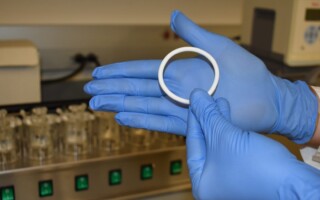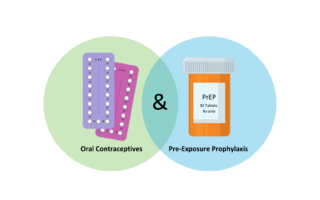
Multiple sclerosis (MS) is a chronic, inflammatory, and demyelinating disease of the central nervous system that can lead to increased disability over time. MS affects 1 million people in the United States and nearly 3 million people worldwide.
In people with MS, the body’s immune system attacks myelin, a fatty substance that insulates nerve fibers, or axons, in the brain and spinal cord. While the body can replace damaged myelin, this process is impaired over time in MS, which can lead to chronic lesions and permanent disability. Numerous disease-modifying therapies are available that can decrease the frequency of relapses by targeting the immune system. However, there are no approved therapies that can repair or regenerate damaged myelin.
There are four clinical phenotypes of MS: clinically isolated syndrome, relapsing-remitting MS (RRMS), primary progressive MS (PPMS), and secondary progressive MS (SPMS). RRMS is the most common phenotype, affecting 85 percent of MS patients and three times as many women as men. It is characterized by periodic relapses with neurologic symptoms followed by intervals of remission. Some patients with RRMS eventually transition to SPMS. SPMS is characterized by gradual worsening of nerve damage and accumulation of disability. Primary progressive MS is a more aggressive form of MS than RRMS and affects 10 to 15 percent of MS patients. PPMS is similar to SPMS in that patients experience gradual worsening of neurologic symptoms and accumulation of disability. PPMS does not involve the periods of relapse and remission seen in RRMS. Currently, only one disease modifying therapy is approved for PPMS.
Research indicates a protective role of female sex hormones in MS. During pregnancy, as estrogen and progesterone levels rise, relapse rates decline, especially in the third trimester. Then, in the first three months postpartum as hormone levels fall, relapse rates increase.
Building on this finding, scientists at the Population Council’s Center for Biomedical Research are investigating whether Nestorone®, a potent progestin and active pharmaceutical ingredient in our FDA-approved one-year vaginal contraceptive system, can help patients with MS. Together with leading university laboratories, the Population Council has demonstrated the potential of Nestorone to induce remyelination in animal models.
The Population Council is conducting a pre-clinical safety study with Nestorone. If the pre-clinical data are supportive, Nestorone will be evaluated for safety and efficacy in clinical trials of patients with primary progressive and secondary progressive MS. If proven safe and effective, this approach could lead to a new adjunct treatment to delay, prevent, or reverse disability associated with multiple sclerosis.




